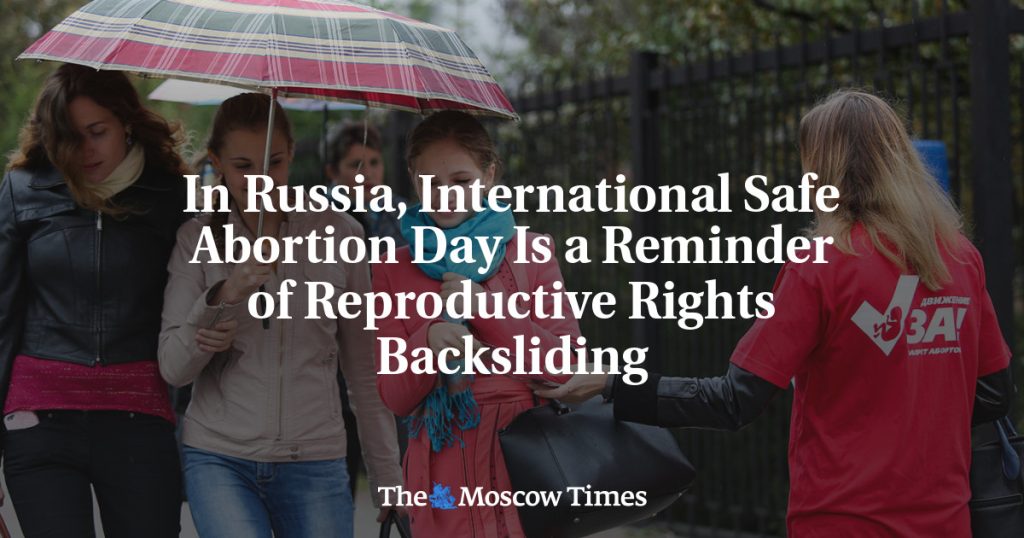International Safe Abortion Day was marked by women’s rights activists around the world, but in Russia, the day served as a reminder of the country’s backtracking on liberal abortion policies. This has left many women with limited access to safe and affordable abortion care. The Far East Primorye region recently became the 11th region in Russia to outlaw “coercion” into abortion, which includes actions such as persuasion, bribery, deceit, blackmail, or workplace pressure that force women to terminate a pregnancy. Additionally, a bill is being considered in the State Duma that would outlaw the “childfree movement” and make the publication of content that promotes childlessness punishable by a fine.
In recent years, there has been an increase in pressure against liberal abortion policies in Russia, with high-profile officials advocating for early childbirth and large families. Health Minister Mikhail Murashko expressed concerns about societal attitudes that prioritize education and career before starting a family, leading to problems such as infertility and reduced birth rates. However, critics argue that officials are spreading dangerous myths about abortion leading to infertility and pressuring women to give birth, even if it is not in their best interest. Abortion is often sought by women who already have children and belong to socially vulnerable groups, making it a difficult decision for many.
While Russia still has liberal abortion policies on paper, women face numerous obstacles when trying to access abortion care in reality. A mandatory waiting period, known as the “week of silence,” was introduced in 2011, during which women must undergo pre-abortion counseling that aims to discourage them from getting the procedure. This counseling is often provided by Orthodox priests or volunteers from conservative groups, rather than trained psychologists, further complicating the process. Some medical professionals refuse to perform abortions based on religious beliefs, forcing women to turn to private providers, which can be expensive and difficult to access.
Private clinics across Russia have been withdrawing abortion services, with at least 502 clinics in 70 regions no longer offering the procedure as of September. The move to restrict access to abortions is supported by the Russian Orthodox Church, which is advocating for a complete ban on abortions in order to uphold “traditional Christian values.” The Women for Life Foundation NGO has been identified as a key player in lobbying efforts to restrict access to abortions and discourage women from seeking the procedure. This shift towards stricter abortion laws is seen as prioritizing “traditional values” over the well-being and rights of women.
Women’s rights advocates in Russia are concerned that as laws become stricter, abortions will not disappear but rather become more dangerous, leading to higher mortality rates among women. The ongoing efforts to limit access to abortion care are seen as undermining women’s rights and putting their health at risk. Activists emphasize the importance of solidarity among advocates, supportive doctors, and allies in order to push back against these restrictive policies and continue to fight for reproductive rights. Despite the challenges and obstacles faced by women seeking abortion care in Russia, there is a determination to ensure that safe and affordable options remain available to all who need them.


